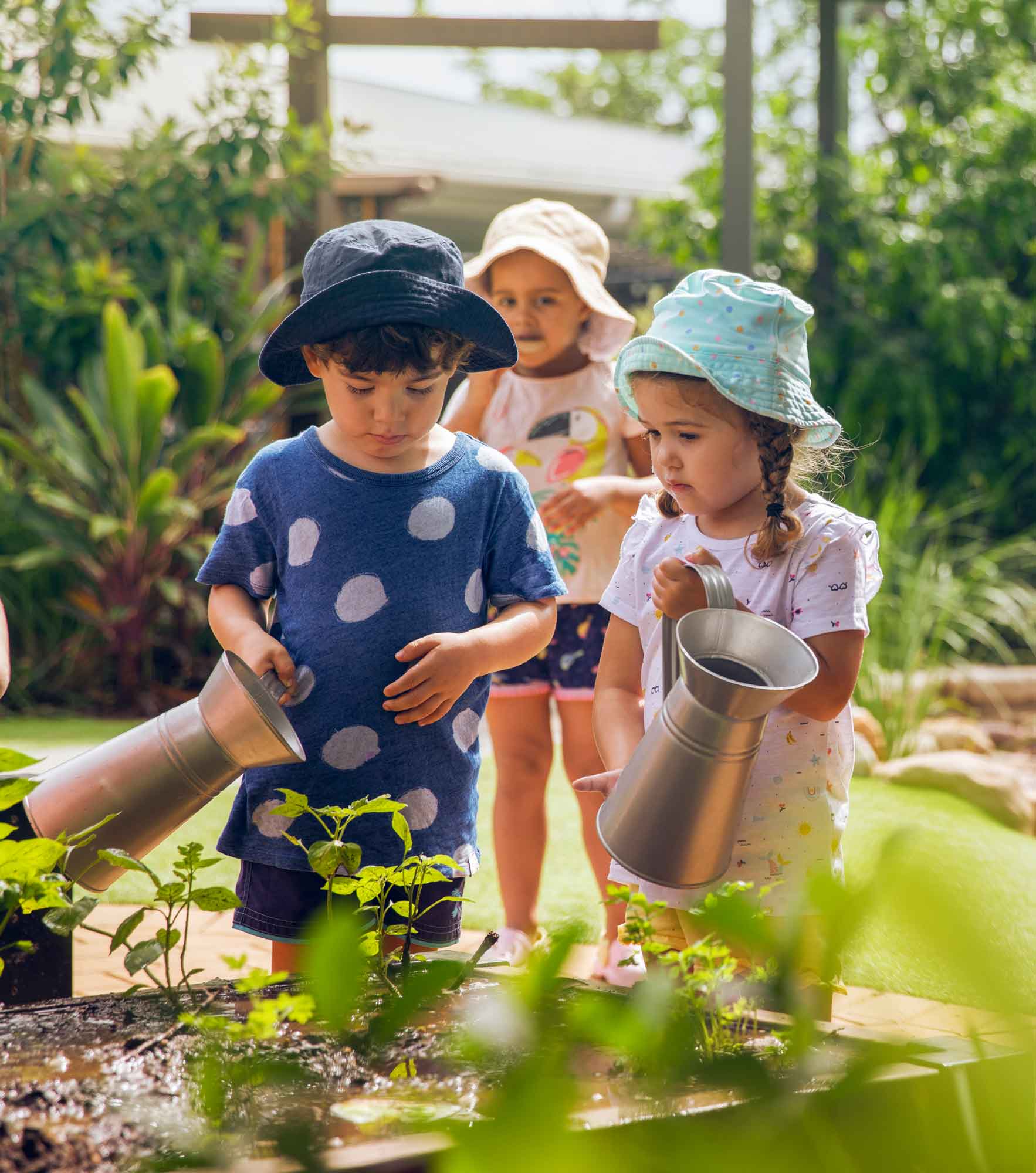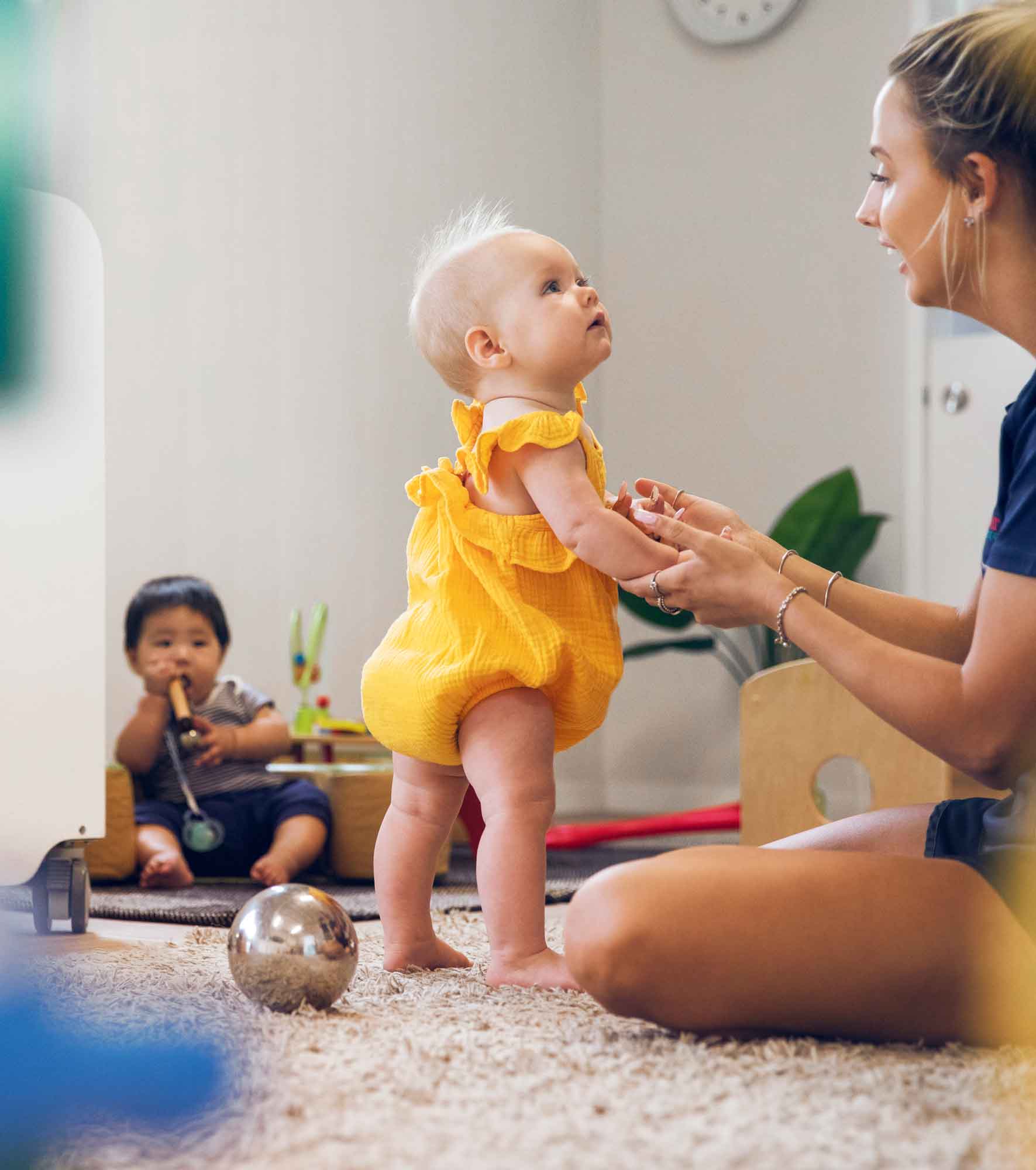Play-based Learning: Benefits and Examples
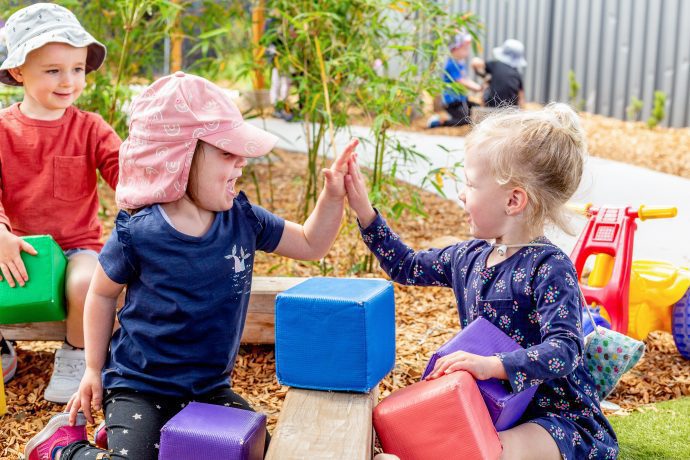
Your child’s early years are some of the most important of their entire life. It’s these years that act as a foundation for their later education and how they will engage with the world around them. Of course, no two children are the same, and we all learn in different ways. Here at Journey, our mission is to inspire our little stars, giving your child the very best start to life. We don’t believe in a traditional school classroom, instead offering a fun play based learning environment.
Importance of play-based learning
There’s increasing research suggesting that this style of learning environment helps to improve your child’s creativity and overall education. A recent study by the Harvard Centre even found that it can lead to better health, longer life expectancy and a greater ability to manage stress!
Life is a journey, and our friendly team want to give your child the skills to start that journey in the best possible way. However, what exactly does play-based learning mean? We thought we would take a closer look at how it can help your child.
What is play-based learning?
The Queensland Government Department of Education describes it as a method of learning that “provides opportunities for children to actively and imaginatively engage with people, objects and the environment”. But what does that actually mean?
Well, play based learning is all about inspiring your child through a fun and interactive environment. Every child has big dreams, and here at Journey, our unique approach helps make them a reality. From finger painting to creating unique shapes using building blocks, we work with your child’s inquisitive nature and desire to have fun.
A happy child is a motivated child, and these activities are designed to nurture your loved one’s curiosity. They’re also crucial in helping to develop their social skills, motor skills and develop the foundations for their language and numeracy education.
Above all, though, the process is about ensuring your child has FUN! We aim to inspire every child through an engaging and nurturing environment. We don’t believe in disguising traditional work as play. Instead, we use games and playtime as a context for learning, letting your child explore, discover and experiment themselves.
All of our trained teachers will support your child on their learning journey. We’ll encourage their inquisitive nature, helping to gently direct their thinking and education. This could be asking probing questions to develop their problem-solving skills. Or it could be using hands-on, real-world learning to raise awareness of literacy or numerical concepts.
Play-based vs academic programs: what are the pros and cons?
Although play based environments have many benefits, we’re not saying that traditional preschool educational programs don’t. Both styles have their pros and cons, and it is about finding the right learning environment that inspires your child and supports them on their journey of life.
What is an Academic program?
This kind of learning environment focuses on ensuring your child is ready for schooling. Primarily, they focus on more classroom-based learning with a teacher at the front of the class. They also follow a more structured curriculum, covering core subjects such as science, maths and literacy.
Although more formal style, this kind of facility does still incorporate playtime and unstructured free time. The lessons are also probably far more interactive and shorter than you might remember from your school days!
While these schools aim to set children up for school, they do have their downsides. The heavy focus on academia places a lot of unnecessary stress on your child, which can be very demotivating. Research has also shown that academic programs tend to lead to more behavioural issues. There is also no evidence that children score any higher in standardised tests.
Play-based environments
The play based learning environment that we offer here at Journey places far less emphasis on a structured curriculum. We focus instead on unstructured and guided play. This is a more relaxed approach, designed to be highly engaging and fun. We believe your child should be able to let off steam and learn by making their own decisions.
Play-based environments have been shown to help develop creativity too. Without a strict curriculum, every day is a clean slate for your child, letting them create fun new adventures. This approach creates a more independent and creative mindset that will benefit your child throughout their life.
Focusing on interaction with other children and teachers also helps to develop social skills. In fact, children who learn in a play based environment has been shown to have higher cognitive flexibility, stronger memory recall and greater self-regulation.
Of course, while there are many benefits, we know it might not be the best solution for every child. Sometimes youngsters prefer a more structured approach, and they might thrive in a more academic-based environment. Equally, without correct guidance from an experienced teacher, children might also not get that exposure to numbers, letters, and scientific concepts.
How play-based environments benefit child development
At Journey, we strive to give your child the most fun and engaging environment possible. With the whole world ahead of them, we want to inspire your child to become that next Nobel winner!
That is why our entire team wants to spark their imagination through an exciting and magical space. We offer a safe structure that helps them to discover this incredible world. There are many benefits of play based learning, including:
1. play based learning benefits: Boost communication skills
In this fast-paced world, communication is essential. Play based learning gives your child the best start in life by boosting their communication skills. Regularly playing with other children and engaging with adults will encourage the development of their speech and vocabulary.
2. play based learning benefits: Emotional development
Alongside being able to establish stronger communication skills, a play based environment also maximises emotional Not only does it boost communication skills, but our play based environment also maximises emotional development. Regularly playing and engaging with peers showcases the need for cooperation, empathy and awareness of friendship.
3. play based learning benefits: Improve motor skills
A play based environment also enhances the development of your child’s fine motor skills. Spending their time running, throwing balls, playing sports, and colouring significantly improves their core strength, hand-eye coordination and balance.
4. play based learning benefits: Develop creativity
Play based learning is also a great way to encourage your child’s imagination and creativity. From pretending to be a doctor to imagining driving a race car, we’ll help them develop their sense of wonder. This is a vital skill for life, allowing them to grow up into creative adults who can adapt to the many challenges life throws their way.
5. play based learning benefits: Enhance critical thinking
As they play and engage with the world, your child will develop their critical thinking skills. By giving them the freedom to play and explore, we’ll help them learn how to overcome challenges and solve problems.
How to choose a play-based program
While there can be no denying the many benefits that come from learning in a play based environment. However, you want to ensure that you find a program that is right for your child. Although many facilities will offer some form of play based education when it comes to finding the perfect program, you should consider:
Your child’s interests
Every child will already have their own interests and passion, so you want to ensure that they’ll be able to explore these. For example, if your child loves to paint, then the program should offer plenty of opportunities to do that.
Variety of play
Although you’ll want to ensure your child can undertake their favourite interests, there should also be chances to engage in other fun activities. This should include both inside and outside play and a variety of play spaces (such as a sensory area or a block building area).
Self-selection
It is also important your child can select the experiences and materials they want to play and engage with. We believe in letting them choose how long they play for and whether they play with others or alone.
The Journey approach: play-based learning activities
Here at Journey Early Learning, we know how beneficial play based learning can be for your child. Life is a journey, and to ensure we can seize every opportunity, we need the right skills and knowledge.
Play based learning activities: Ice play
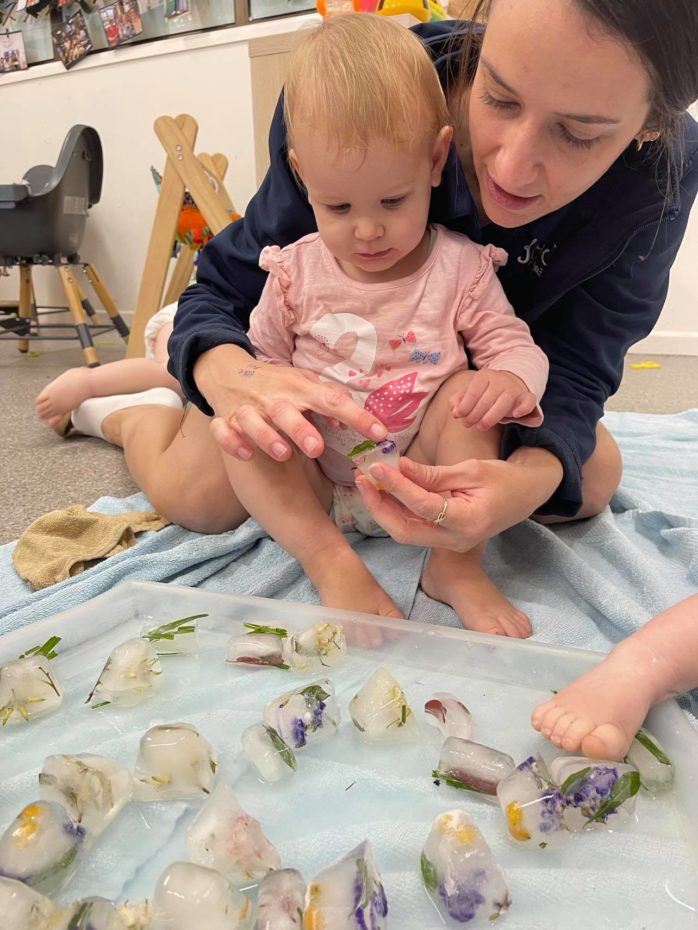
Ice play encourages children to manipulate small objects building on their fine motor skills, strengthening the small muscles in their hands and fingers as well as developing their hand-eye coordination. It also extends on their senses and builds on vocabulary by describing what they can see and feel.
Play based learning activities: Water play
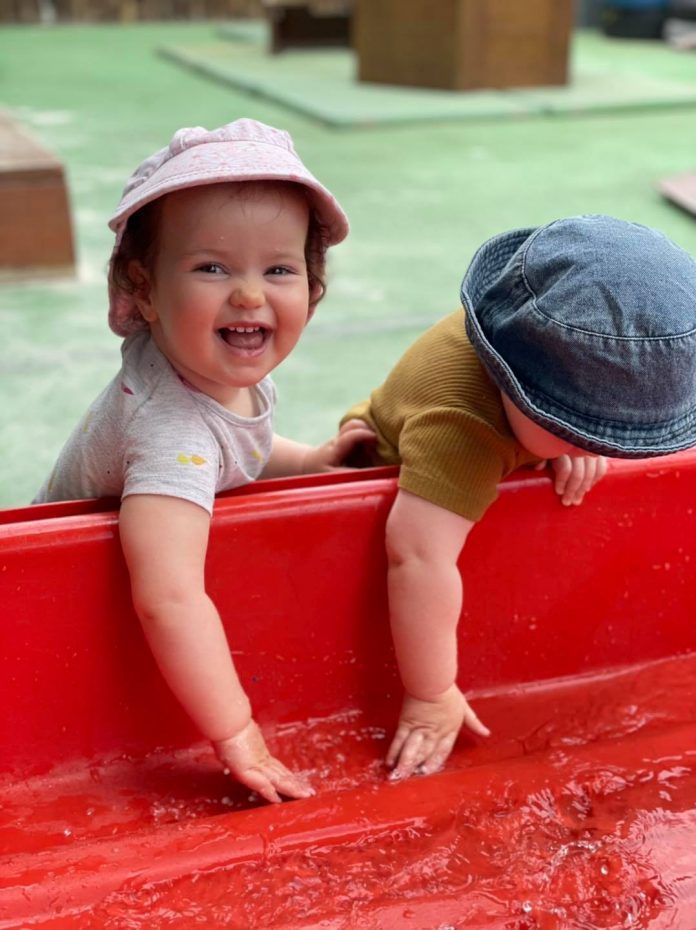
Water play not only build children’s strength and endurance, it also stimulates an internal body sense called proprioception which is important for awareness of body position and movement and is essential for developing coordination skills.
Play based learning activities: Creative play
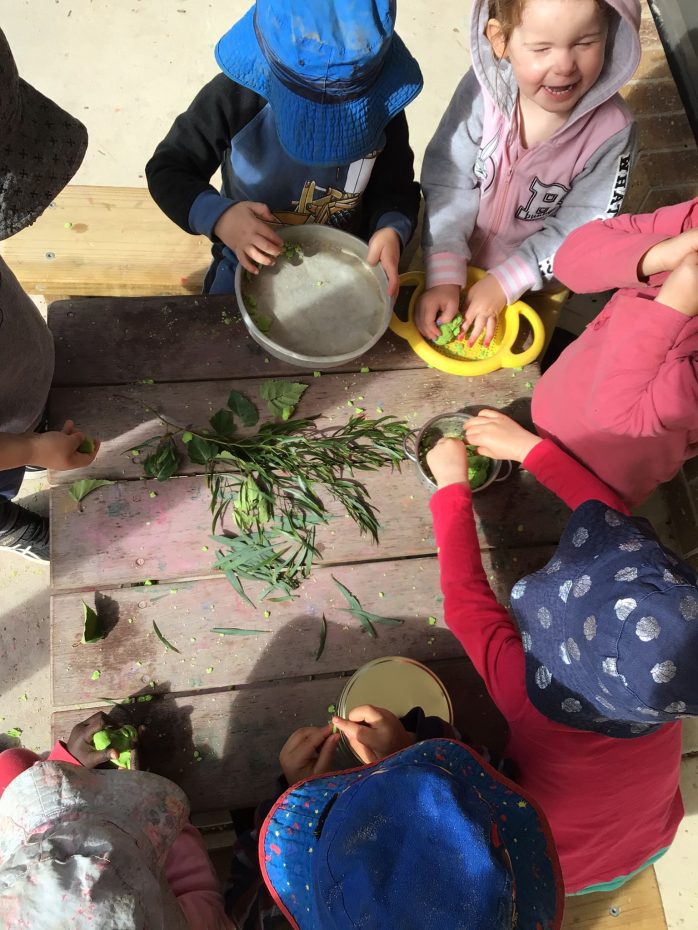
These skills are learnt at a young age, and we offer fun and dedicated spaces for children from 0 years up to 5 years old. We believe in creating a shared learning experience that lets your child thrive as they discover the world and make friends. Each of our rooms has an experienced and qualified Early Childhood Teacher, helping to maximise your child’s experience.
Our mission is for every child to have the chance to embark on the journey of life in the best possible way. Of course, we know that mums and dads need that little bit of support too. That is why our friendly team is always on hand to help you. One of the biggest challenges is trying to work out your child care subsidy. But don’t worry, our handy Child Care Subsidy Calculator will help you understand exactly how much you could save.
